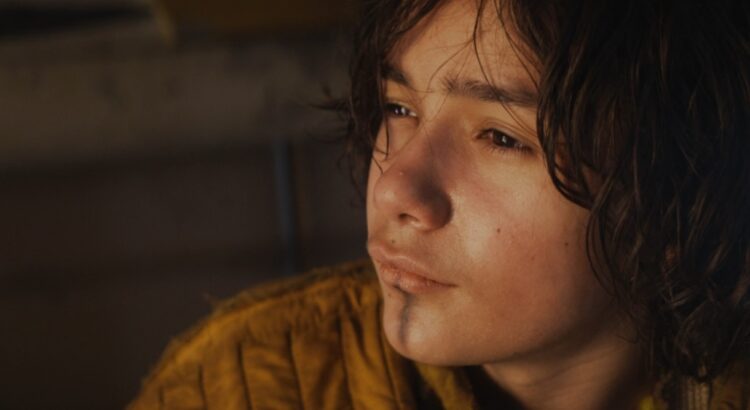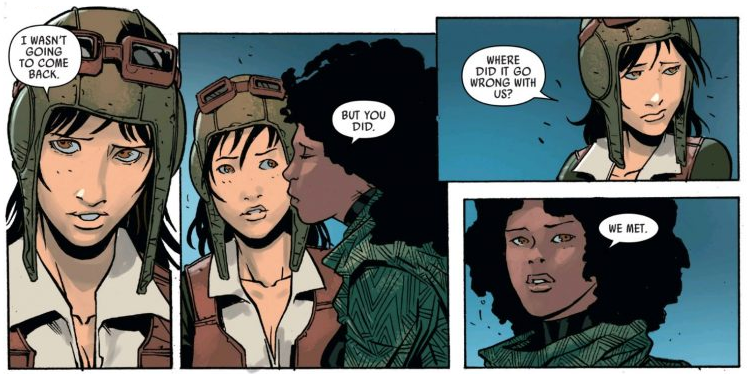When you look into the hole in your heart, what do you see? A loneliness, empty black, endless as the sea of space stretching infinite. There is no escape from the world, the real world, the one crumbling and burning and flooding and filled with sadness. Or maybe there is—too-sweet coffee from the chain down the road (don’t think about the labor conditions of the growers); the vivid sky as the sun sets over the sea (don’t think about how the smoke adds to the beauty); a silly little show about space once a week, while it lasts (don’t think about how the industry is being eaten alive by conglomerates).
Cynicism. Optimism. Realism. Where do you fall? Where do I fall? Where, in the end, does Andor fall? Not just the show, but the man himself. When he looks into the hole in his heart, what does he see?
When he looks into the sky, is it blue?
Easy answer: no, it is not. Mostly it is grey, or entirely stolen away by architecture and brutality. Andor is a show about fascism, and revolution. We are shown oppression, real and fictional and fictional but far too real. Tony Gilroy takes us like a puppy and rubs our face in the dirt, asking us, Do you understand what is happening now? and it is done with such brutal beauty that it’s hard to believe this is actually Star Wars.
The Mandalorian (deep grey clouds) once promised a grittier, more grounded Star Wars. Strong shadows, dark moons, bounty hunters with snappy lines. Sharp, silver armor, untainted by the childhood colors of Boba Fetts in the toybox. Silver like the knights of old, the men of mud and blood and smoke. The Mandalorian was to be a man, a real man, unlike—uh, the rest of the men of Star Wars, I guess. We watched the unravelling of the myth in real time, as Din Djarin stumbled through his first day as a protagonist like some kind of Star Wars Sailor Moon, and wound up a dad. This was no underworld, but the upper world of goofy puppets, vivid blue shrimp, kids’ cartoon shows, and surprising love.
What would Mando see in his heart, if he looked? We will never know; the show doesn’t care to consider it. Din is a prop piece in his own world, a puppet for big men playing little boys in a universe far removed from his. Those strings, invisible, infinite. He is a fake man. A simulacrum of a noble warrior. We know this to be true. Must stories, then, mean something?
Read More

